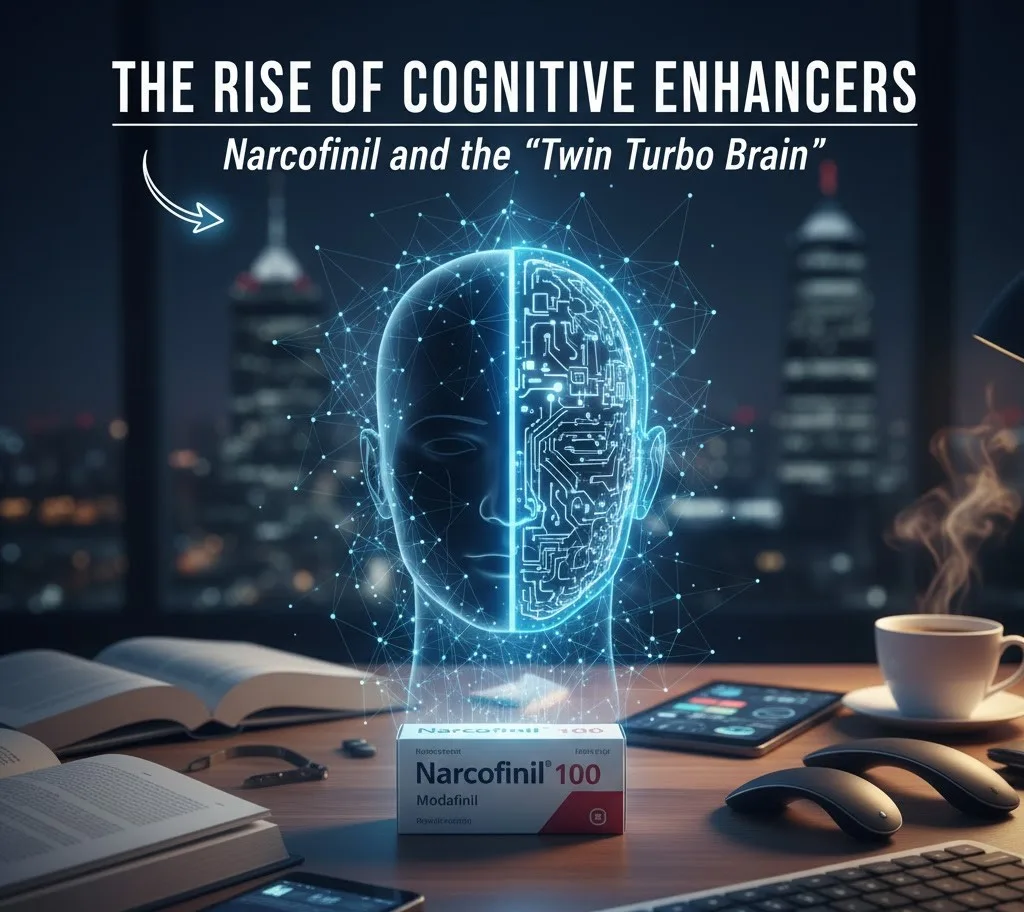The modern world prizes relentless productivity. In high-stakes fields—from academia and software development to finance and creative industries—the ability to maintain laser-sharp focus and work extended hours is often the key differentiator. This intense demand for mental endurance has fueled a massive, controversial trend: the off-label use of cognitive enhancers, often dubbed "smart drugs."
At the forefront of this movement is a medication known as Modafinil.
Modafinil: From Narcolepsy Treatment to Nootropic
Originally developed as a prescription drug to treat excessive sleepiness associated with conditions like narcolepsy and sleep apnea, Modafinil is classified as a eugeroic, or a wakefulness-promoting agent. Unlike traditional central nervous system stimulants, it is thought to carry a lower risk of addiction and does not typically induce the nervous jitters or severe crash often associated with amphetamines.
In healthy individuals, users report that Modafinil provides a powerful boost, turning the mind into a kind of "twin turbo" engine. The desired effects include:
-
Sustained Concentration: The ability to focus on complex or monotonous tasks for drastically extended periods.
-
Reduced Fatigue: Effective elimination of the sensation of sleepiness, allowing for longer periods of activity.
-
Enhanced Executive Function: An improvement in high-level cognitive skills like planning, problem-solving, and decision-making.
The drug has become ubiquitous in certain subcultures, whispered about on university campuses, in Silicon Valley offices, and on online forums dedicated to "biohacking" and performance optimization.
The Ethics and Evidence: The Great Debate
The widespread, off-label consumption of Modafinil has ignited significant debate in scientific and ethical communities.
The Skeptics and the Science: While anecdotal evidence is overwhelmingly positive, clinical studies on healthy individuals often yield mixed results. Some research supports the drug's ability to improve specific areas of working memory and attention, particularly in situations of sleep deprivation. However, critics argue that the drug's primary function is simply to keep people awake. In their view, it doesn't elevate true cognitive function beyond a person's baseline; it merely offsets the performance decline caused by being tired.
The Ethical Quandary: Perhaps the most challenging aspect is the ethical dilemma known as "cognitive doping." If a pharmaceutical can provide a genuine mental advantage, is it fair for some people to use it while others do not? Does it place undue pressure on everyone else to participate in a chemical arms race just to keep up? Furthermore, because the drug is being used off-label, there is a lack of long-term data regarding its effects on healthy brains.
The rise of Modafinil underscores the intense pressure of the modern performance economy. As technology and competition accelerate, the line between medical treatment and human optimization continues to blur, leaving society to grapple with how far we should go to attain the competitive edge.

